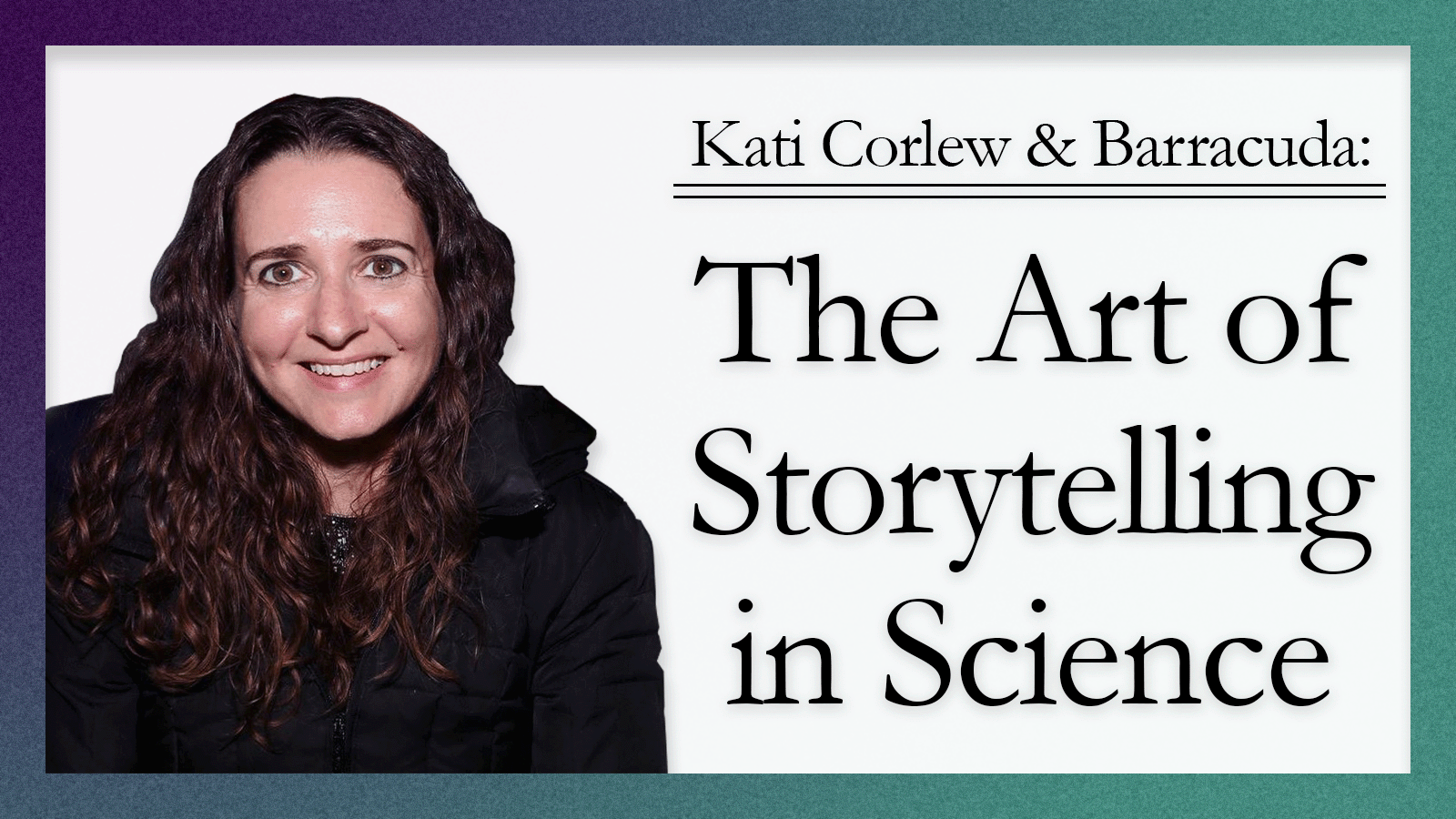
Kati Corlew and Barracuda: The Art of Storytelling in Science
By Stefania Irene Marthakis
Kati Corlew is an Associate Professor of Psychology and Faculty Coordinator of Civic Engagement at the University of Maine Augusta (UMA), Bangor campus. Corlew has also developed several courses on the study of qualitative research methods, community organizing, and more specifically, a Psychology of Disaster and Climate Change undergraduate course.
Further, Corlew created the Psychology in Context Student Research Lab (PiC Lab), where UMA students—many of whom are non-traditional students (i.e., from lower-income and first-generation college-going communities)—can gain practical and theoretical experience through research and community work. And in the fall of 2021, Corlew’s Trauma-Informed Emergency Management graduate program was launched—this program currently offers a Master of Science and a Graduate Certificate.
In addition to the psychology of disaster and climate change, Corlew’s mission has also focused on food security. As Coordinator of the UMA Bangor Community Garden and Labyrinth, Corlew’s goal has been to cultivate community and provide educational content that centers around overcoming the stigma of food insecurity. Although the gardening is secondary, all the food harvested goes either directly to the student garden participants or to Bangor-area food pantries.
As part of Barracuda, an NSF EPSCoR RII Track-2 grant that aims to understand the species adaptation process under climate change and its effects on cultural evolution—which officially began in September of 2020, Corlew leads the community engagement component.
During Barracuda’s first year, Corlew focused on researching the farming culture of Northern New England. This allowed Corlew and the Barracuda team to get a better understanding of the specific needs of rural communities, so they can engage from a more knowledgeable perspective as well as integrate the community’s knowledge into Barracuda’s project.
Corlew explained, “Our overall plan is to have an iterative process where we are engaging repeatedly with the community—to get their input about where our science should go while also sharing what we have developed so far to see where we can tweak it to reach the community’s goals.”
Community outreach requires building relationships over time—and asking: “How best can we communicate our research into the community?”
To translate new areas of study such as data science and data tools with the community, Corlew hopes to bring the storytelling element of communication to the project. Like storytelling, Barracuda uses other boundary crossing objects such as maps to help communicate their research to the community as well as within their own interdisciplinary team.
Corlew developed and has been engaging the Stakeholder Council, with whom Barracuda is “co-creating” the science in the project. Time has also been spent on researching perceptions in data science communication. Currently, Corlew is designing a mentoring project for undergraduate students to learn about and engage in the Barracuda project.
“Our major goal,” Corlew stated, “is to create science in such a way that it is immediately useful and usable by decision-makers and the folks that have their boots on the ground—who are doing the things that are most impacted by climate change and have the potential to impact either the adaptations or mitigations as well as the long-term sustainability of their communities.”
